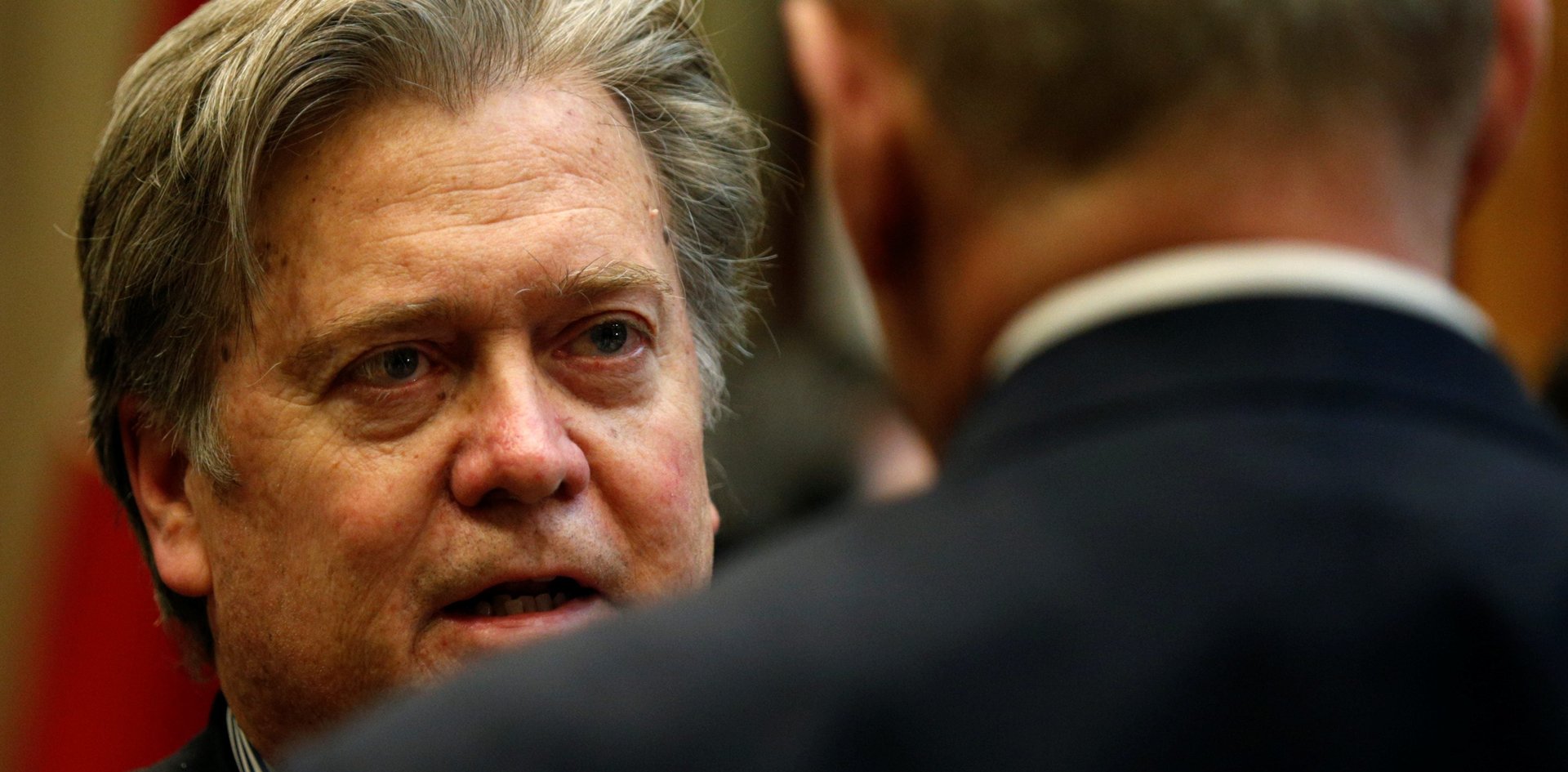Trump adviser Steve Bannon thinks there’s “no doubt” the US is headed for war in the South China Sea
Many observers were already alarmed over the increasing power of Steve Bannon, US president Donald Trump’s top political adviser, in the White House. Then came the recently surfaced comments he made on the radio last March about war in the South China Sea being inevitable.


Many observers were already alarmed over the increasing power of Steve Bannon, US president Donald Trump’s top political adviser, in the White House. Then came the recently surfaced comments he made on the radio last March about war in the South China Sea being inevitable.
After winning the election, Trump announced that Bannon would be the White House chief strategist. On Jan. 31, Trump reshuffled the influential ”Principals Committee” of the National Security Council, installing Bannon as a regular member while ousting key military and intelligence officials. The move—described as “dangerous and unprecedented” by Vermont senator Bernie Sanders—elevates Bannon’s role from political strategizing to policy-making.
That makes understanding his worldview all the more urgent. Before helping Trump win the election, Bannon worked as a Goldman Sachs banker, a TV show investor, and the leader of alt-right media outlet Breitbart News.
A hint of his outlook on the South China Sea—arguably the world’s most dangerous flashpoint—can be found in a radio interview Bannon conducted with conservative author Lee Edwards, about the latter’s book A Brief History of the Cold War.
In it, Bannon says (at the 5:17 mark):
“We’re going to war in the South China Sea in five to 10 years, aren’t we? There’s no doubt about that. They’re taking their sandbars and making basically stationary aircraft carriers and putting missiles on those. They come here to the United States in front of our face—and you understand how important face is—and say it’s an ancient territorial sea.”
Bannon is now in a position to shape US policies in the South China Sea. He’ll work with the newly confirmed secretary of state Rex Tillerson, who said during his confirmation hearing that China’s access to the militarized islands it’s built “is not going to be allowed.” Those comments caused alarm, especially as the US would have little legal basis for creating a blockade.
“If the US is going to blockade China’s access to territories which it—rightly or wrongly—believes are its, then we are in for a confrontation,” Ashley Townshend, a South China Sea expert at the University of Sydney, told the Guardian.
For his part, Bannon, who also served as a naval officer in the Pacific, seems ready for a fight.